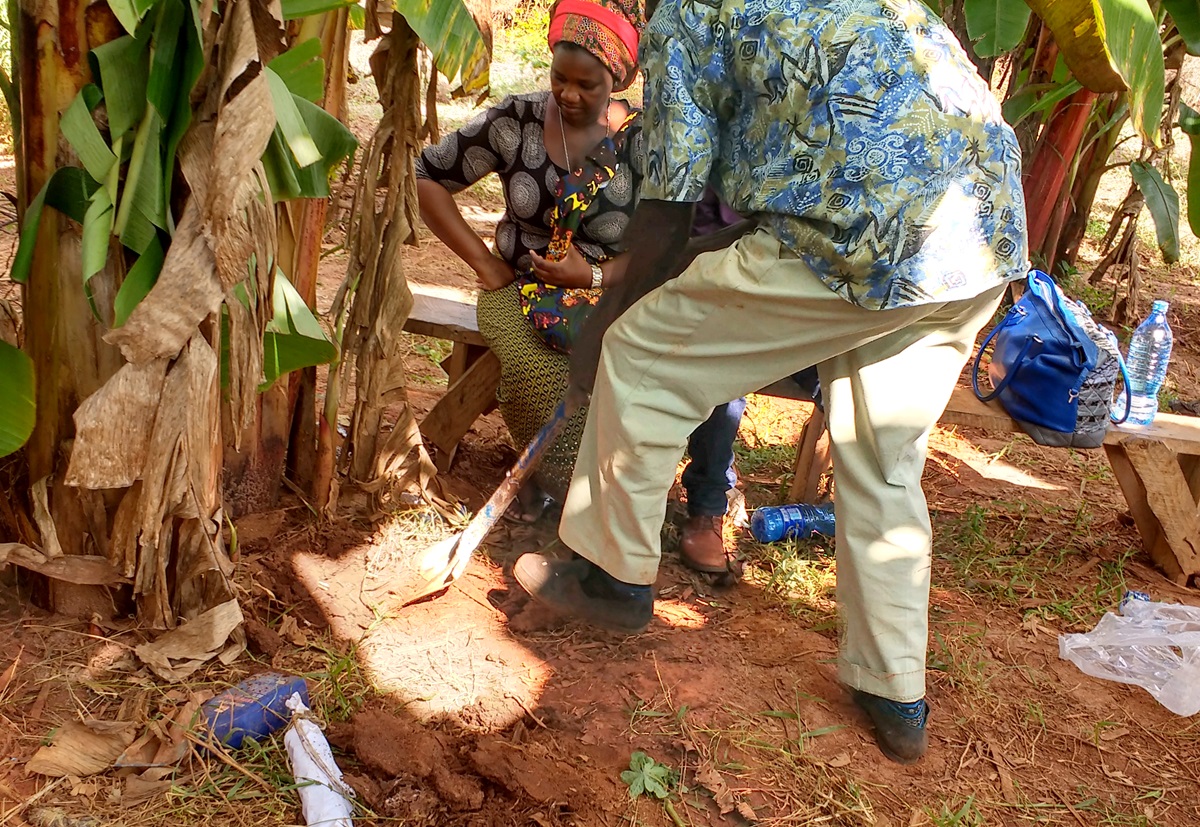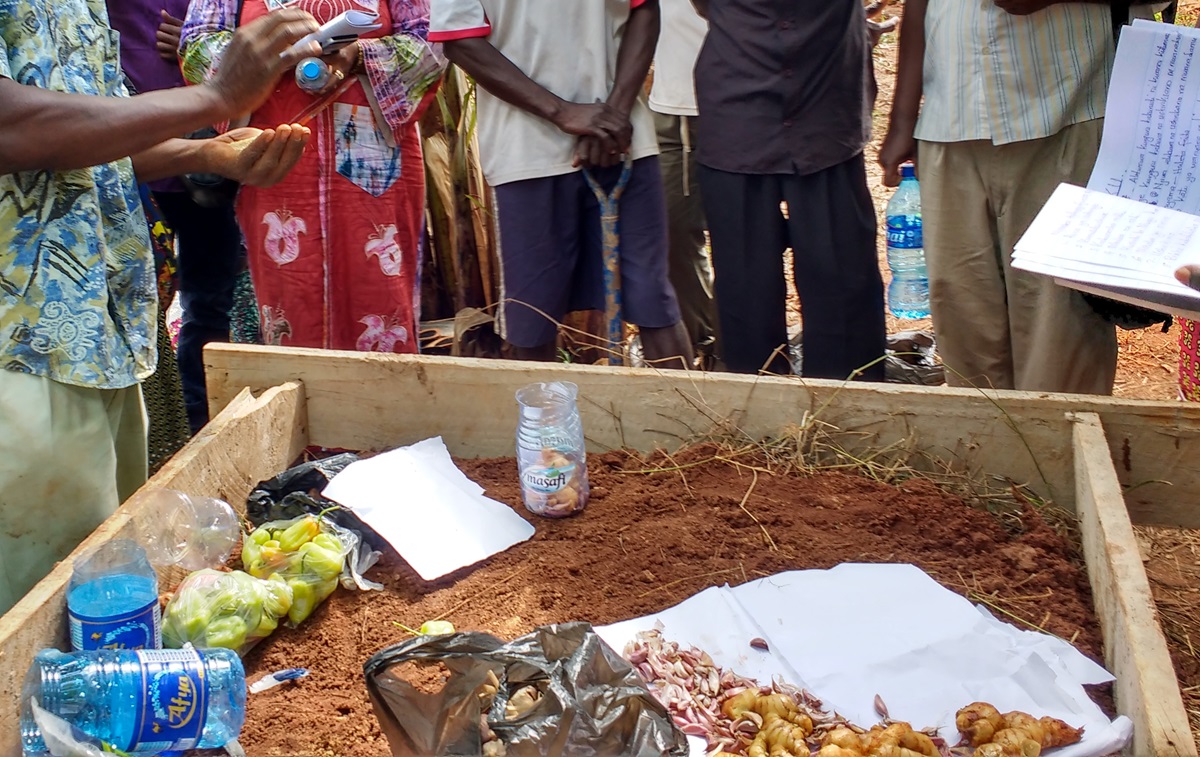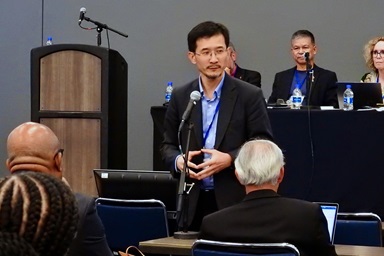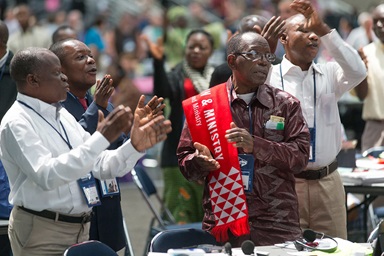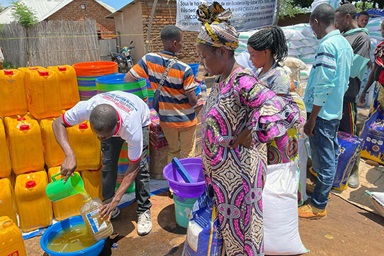Members of United Methodist Women met in Dar es Salaam to learn about organic farming. Twenty-six women from the Tanzania Conference gathered to discuss what they eat every day and where and how they grow their food.
At the April 23-27 workshop, the women learned about organic fertilizers, farming and the use and protection of the soil. The women came from 10 districts: Morogoro, Tarime, Kigoma, Kitonga, Kasulu, Dodoma, Mwanza, Geita, Arusha and Moshi.
Grace Musuka, a Global Ministries regional missionary for Cameroon, Congo, Zambia, Zimbabwe and Malawi, organized the training program for United Methodist Women in Tanzania. In addition to organic farming, the women learned about reusable sanitary pads.
how you can help
Support Grace Musaka’s work through Advance #3021521.
Support Kabaka Ndala Alphonsine’s work through Advance #15161Z.
Mwita Baita Baitele, the teacher on organic farming, invited participants to be attentive on diet and said: “to eat healthy food entails (a) healthy life and long life.’’
Mwita called the women the “backbones of the family” and urged them to be good stewards of the Earth through organic farming.
Knowledge acquisition is a process, Consolatha Fatuma Bakari, lay leader of Changombe United Methodist Church, said during her morning devotion, taken from Proverbs 13:15.
Organic farming will help to protect the environment not only for United Methodist women, but for all Tanzanians, said Kabaka Ndala Alphonsine, United Methodist Women coordinator in Tanzania.
Through bead making and sewing clothes, United Methodist Women are trained to make money in the United Methodist Women Empowerment Center. This center sells the goods the women make.
“Now that United Methodist women are trained on organic farming and the usual work of making bags, economic empowerment is under way and children will be fed at home, and school fees are assured,’’ Ndala said.
Mwita provided direction on how to make organic manure and fertilizer in three stages. The purpose is to protect the seeds, the plants and get healthy and profitable crops, he said.
During the training, Musuka visited the United Methodist Women sewing center and the Mtipule, the Masai camp, where she met with United Methodist women involved in the Masai ministry.
Idda Ngowi, pastor to the Masai, has been assigned to the tribe’s camps since 2012.
Masai people do not have any school or health facilities, Ngowi said. The only building in the camp is the church, which serves as a classroom for preschool and a health center.
Ngowi said life is difficult for Masai women.
“Early marriage, female genital mutilation, family planning are challenges in the Masai tribe. Girls at 2 months, she is already booked for marriage. At 11 years old, a girl is married and lives with her in-laws. At 12 years old, she has a baby,’’ Ngowi explained.
She is hopeful that it will help as she preaches about child rights, protection of women and explains to Masai women that the government has banned female genital mutilation. However, this practice is still done secretly, she said.
Musuka presented the Masai women with a sewing machine and fabric as a sign of empowerment.
Musuka also heard life stories from United Methodist women in Dar es Salaam on menstrual hygiene and discussed reusable sanitary pads. The purpose of the discussion was to teach them about making and distributing menstrual hygienic products for use at home, in the village and the community. The pads are washable and can be reused.
The training will allow United Methodist Women to teach other women about reusable sanitary pads. Women in Tanzania will start training their own girls how to make reusable pads so that they can train other youths in the church.
Training wrapped up with a sermon from the Rev. Mutwale Ntambo whose theme was taken from Genesis 2:8-15 and Galatia 5:22-25.
“God gave to humankind the responsibility to care for the Earth and use it responsibly,” he said. “Today, every United Methodist woman is a tree in God’s garden.
“The church needs trees that bear fruits for spiritual, social, physical and economic nourishment.”
Musau is secretary of the Central Congo Conference and health board chair of the North Katanga Conference. News media contact: Vicki Brown, Nashville, Tennessee, (615) 742-5470 or newsdesk@umcom.org. To read more United Methodist news, subscribe to the free Daily Digest.
Like what you're reading? Support the ministry of UM News! Your support ensures the latest denominational news, dynamic stories and informative articles will continue to connect our global community. Make a tax-deductible donation at ResourceUMC.org/GiveUMCom.

